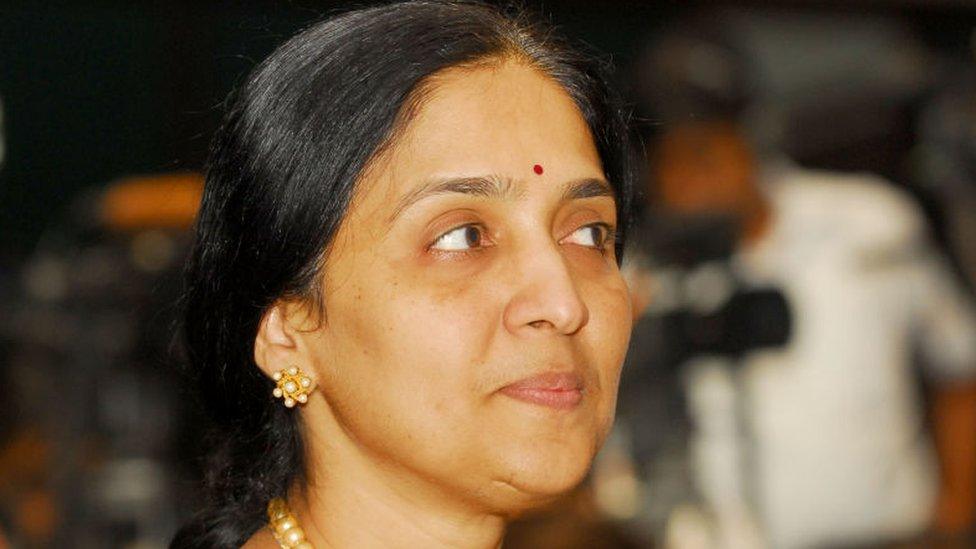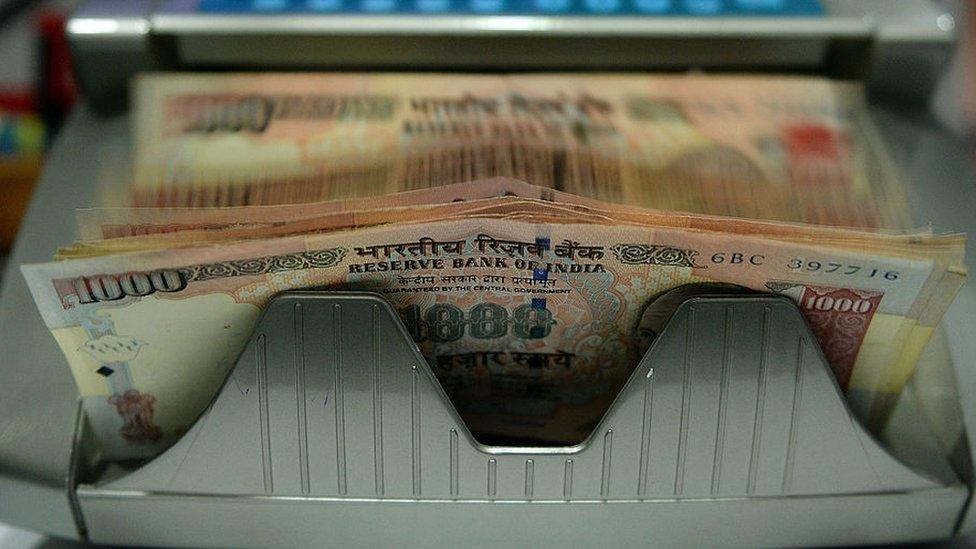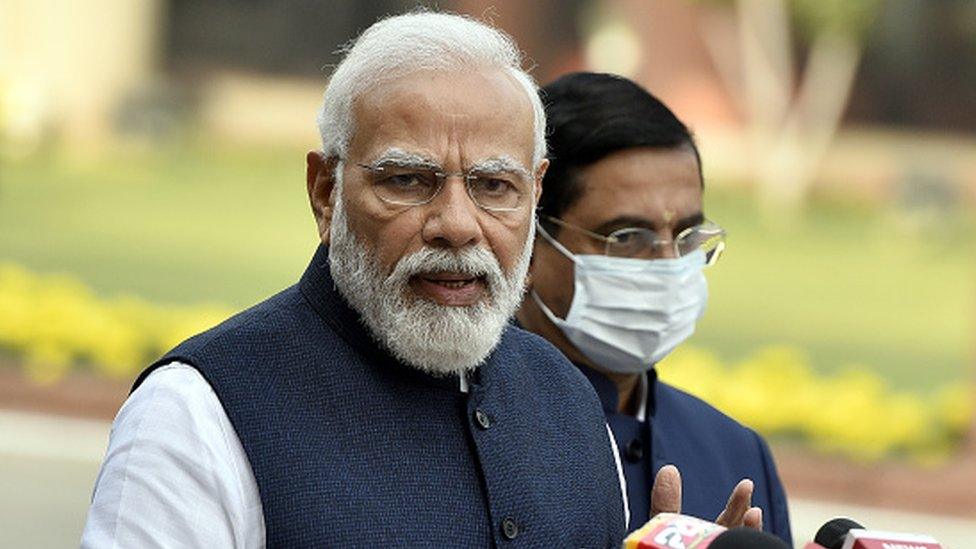India bourse head was a 'puppet' of unnamed yogi, regulators say
- Published

Chitra Ramkrishna left her role at the National Stock Exchange in 2016
The former chief executive of India's largest bourse made crucial decisions by consulting and sending confidential information to a yogi, regulators say.
Chitra Ramkrishna sought advice from a spiritual guru in the Himalayas while head of the National Stock Exchange (NSE), the Securities and Exchange Board of India (SEBI) says.
She allegedly shared business plans, board meeting agendas and financial projections with the unnamed guru.
Ms Ramkrishna quit the bourse in 2016.
SEBI said documentation it had gathered during a probe "clearly showed" that the yogi was running the NSE, and Ms Ramkrishna was "merely a puppet in his hands" until the end of her time in the role.
"The sharing of financial and business plans of NSE... is a glaring, if not unimaginable, act that could shake the very foundations of the stock exchange," the regulator said.
SEBI fined Ms Ramkrishna 30m rupees (£293,186; $396,975) and banned her for three years from working with any bourse or any firm registered with the regulator as an intermediary.
An email sent by the BBC to an address regulators had linked to the guru was not immediately answered.
No other identifying details were provided by the regulator, except that the yogi is likely to be living in the Himalayan mountain range.
In a submission to SEBI, Ms Ramkrishna said she met the yogi on the banks of India's Ganges River nearly two decades ago.
Ms Ramkrishna said she had sought his advice on "many personal and professional matters" ever since.
"As we know, senior leaders often seek informal counsel from coaches, mentors or other seniors in this industry which are all purely informal in nature. In a similar strain I felt that this guidance would help me perform my role better," she said.
SEBI called Ms Ramkrishna's actions a "glaring breach of regulations", and said her views that her actions did not cause any harm to the market were "absurd".
The regulator said it had come across email exchanges between the guru and Ms Ramkrishna during an earlier investigation into the NSE.
Ms Ramkrishna, who was among the executives who started the NSE in the early 1990s, cited "personal reasons" when she left the exchange in 2016.

Analysis by Nikhil Inamdar, India Business Correspondent
Mind-boggling and implausible are just two of the adjectives being used by social media users in India, reacting to revelations that a nameless 'spiritual guru' in the Himalayas was influencing key business decisions at the country's largest stock exchange.
Some even said the story would lend itself well to being adapted into a high-octane web drama.
But while "gobsmacked" is pretty much the immediate reaction on the street, experts say the bizarre findings by India's stock market regulator are a stinging indictment of the poor corporate governance practices at NSE, which in areas like derivatives is the world's largest exchange. This is particularly ironic given how strict governance rules are for companies listed on such stock exchanges.
"This is a global scandal," said Sucheta Dalal, India's foremost investigative journalist and co-author of 'Absolute Power', a deep dive into the exchange's amazing rise, and the algorithm scam which led to the regulator launching the investigation that's brought these issues to light.
Calling the inquiry "shoddy" Ms Dalal said there needs to be a custodial interrogation of the former boss, who she believes has got away with a mere slap on the wrist.
She also questioned the timing of the revelations, suggesting that authorities want to close out any pending regulatory inquiries into NSE, in order to clear the path for its initial public offering.
But the issue is unlikely to die down anytime soon, with the jury still out, on the identity of the mysterious yogi at the centre of the drama. The episode has yet again emphasised the need for more robust whistle-blower mechanisms, Amit Tandon, Founder of institutional advisory firm IIAS told the BBC.

You may also be interested in:
Tamil Nadu: The daughter who found mum in India after 23 years
Related topics
- Published4 February 2022

- Published2 February 2022

- Published31 January 2022
